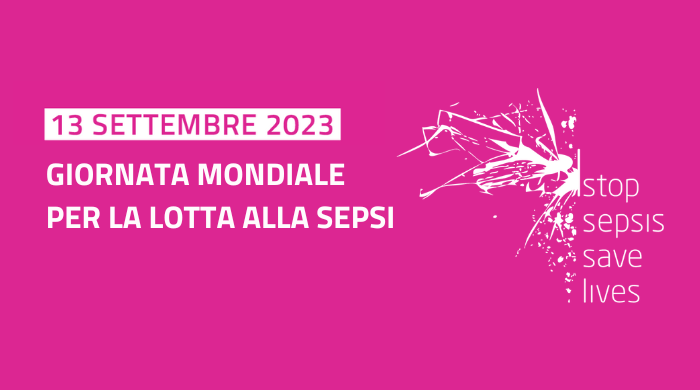World Sepsis Day is celebrated on September 13th World Sepsis Day, a global initiative now in its eleventh edition. The day is aimed at increasing public awareness of sepsis, to improve its prevention, recognition and clinical management.
Also this year the Ministry of Health renews its commitment to supporting the campaign promoted by the World Health Organization (WHO).
What is sepsis
Sepsis is a serious public health problem, especially in developing countries (Low-to-Middle-Income Country, LMIC), but also in our country.
The definition of sepsis, published in February 2016 by theEuropean Society of Intensive Care Medicine e della Society of Critical Care Medicinedescribes it as one life-threatening organ dysfunction caused by an inappropriate host response to an infection.
Sepsis occurs in response to an infection, which damages tissues and organs and can lead to shockmultiple organ failure and death, especially if unrecognized and not promptly treated.
Some people are more at risk of sepsis, such as people with chronic lung, liver or heart disease, people without a spleen or with weakened immune systems, children under one year of age, adults over 60 years old.
Patients suffering from oncological diseases have a 10 times greater risk of sepsis than non-cancer patients.
Smoking is a risk factor for sepsis, as it increases the risk of respiratory infection.
Many patients suffering from sepsis require transfusions of blood or blood products. Therefore, having a safe supply of blood is important in the fight against sepsis.
Some data
In the world occur approximately every year 47-50 million cases of sepsis, of which only 20% happens in hospital.
Globally, 1 in 5 deaths is associated with sepsisfor a total of at least 11 million deaths a year, equal to 1 death every 2.8 seconds. Additionally, long-term effects of sepsis, known as post-sepsis syndrome, occur in up to 50% of survivors, who suffer from persistent physical, cognitive, and psychological sequelae. Recovery can take months or years.
40% of sepsis cases are represented by children under the age of 5. In industrialized countries it can cause death in 3-4% of newborns and up to 24% of newborns born in developing countries. They occur around the world every year approximately 680,000 neonatal deaths for sepsis, with a particularly high risk in India, Pakistan, Nigeria, Congo, and China.
Neonatal sepsis can also lead to serious clinical manifestations, often associated with long-term irreversible deficits.
In Italysome studies have found that the number of death certificates reporting sepsis increased from 18,939 in 2003 to 49,010 in 2015 (from 3% to 8% of all deaths in Italy recorded in these years).
What to do
International organizations, such as World Health Assembly (WHA), The European Society of Intensive Care Medicine (ESICM), The Global Sepsis Alliance (GSA) e The Society of Critical Care Medicine (SCCM), highlight the need to improve infection prevention to combat sepsis by:
frequent hand hygiene performed correctly scrupulous application of infection prevention and control measures (Infection prevention and control IPC) no setting of care the periodic updating of healthcare personnel on IPC and antimicrobial-resistant infections the availability of safe and clean environments for childbirth the use of available vaccinations.
Recent papers describe the use of new antibiotics for the treatment of sepsis. Specific biomarkers can be used for early diagnosis of neonatal sepsis.
to know more
